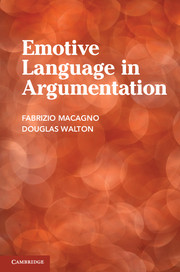3 - When Words Are Reasoning
Definitions as Strategies of Classification
Published online by Cambridge University Press: 05 June 2014
Summary
Words are instruments for modifying our beliefs and affect our decisions. Stevenson (1944) underscored that words have a tendency to alter our knowledge, which he named “descriptive meaning.” Words describe, and at the same time hide, reality (Schiappa 2003). They frame a certain state of affairs by pointing out specific features and leaving out others. This twofold dimension of names, their nature as instruments for providing and excluding information, is crucial for understanding the strategies of meaning listed in the first chapter. Selecting information always results in hiding some characteristics of a situation. Amplifying, or rather emphasizing some features of a complex state of affairs inevitably results in leaving out other characteristics. According to the selection of features, certain emotions can be triggered and others prevented. The strategies of selection are grounded on the power of words to represent, describe, and refer to reality. Sometimes words are not simply used to select what is important for the conversation, but to distort reality. Dictatorships are called ‘democracies’ while the word ‘pacification’ conceals massacres and human tragedies. However, sometimes the boundary between selecting the relevant aspects of reality and lying becomes, or is made to become, blurred. The meanings of words are altered, and also what they represent. The meanings of some words are altered, and a powerful ambiguity is introduced. Sometimes the effect is funny or ridiculous, but sometimes it is extremely effective. We can open the newspaper and notice how difficult it is to judge the boundaries of the words, between ‘true freedom’ and ‘slavery,’ ‘treason,’ and ‘true patriotism,’ ‘war-making’ and ‘peace enforcement’ (Doyle & Sambanis 2006: 1).
- Type
- Chapter
- Information
- Emotive Language in Argumentation , pp. 69 - 108Publisher: Cambridge University PressPrint publication year: 2014

